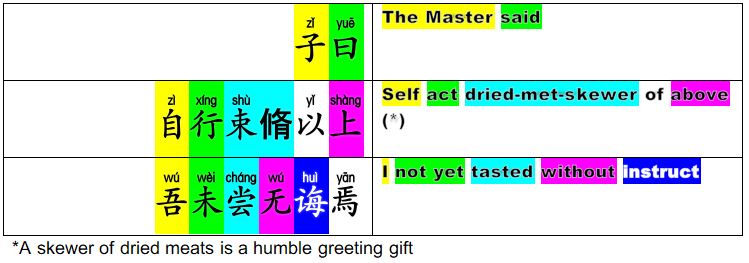Analects 16.8
Original Text:
孔子曰君子有三畏畏天命畏大人畏圣人之言小人不知天命而不畏也狎大人侮圣人之言
Translation:

Other Translations:
The Master said, “The gentleman stands in awe of three things: the Mandate of Heaven, great men, and the teachings of the sages. The petty person does not understand the Mandate of Heaven, and thus does not regard it with awe; he shows disrespect to great men, and ridicules the teachings of the sages.”
Confucius, & Slingerland, E. (2003). Analects: With selections from traditional commentaries. Hackett Publishing.
Confucius said, The gentleman has three things he stands in awe of. He stands in awe of the Mandate of Heaven, of persons in high position, and of the words of the sages. The petty man, failing to understand the Mandate of Heaven, does not view it with awe. He treats persons in high position with disrespect and scorns the words of the sages.
Confucius, & Watson, B. (2007). The Analects of Confucius. Columbia University Press.





